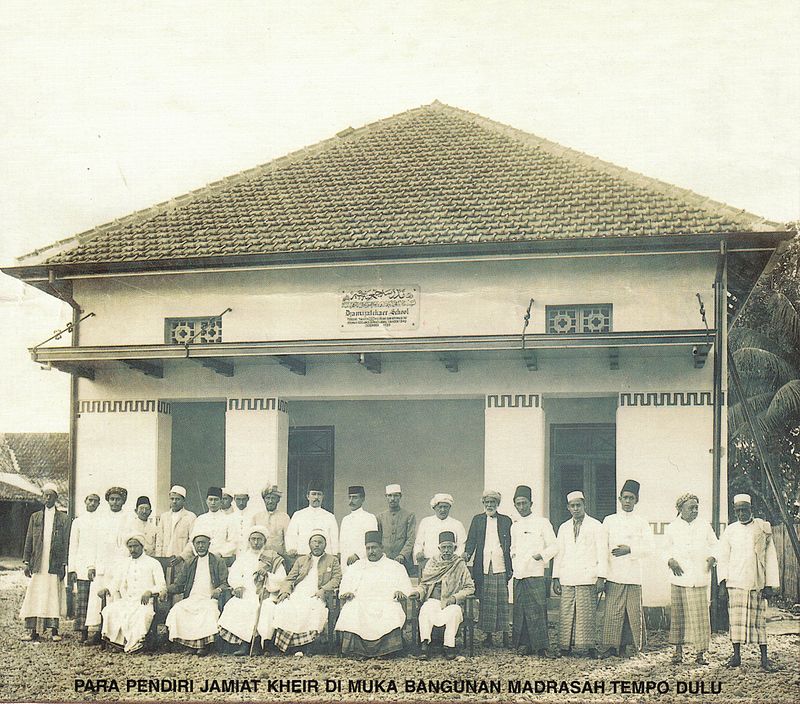Jamiat Kheir: A Catalyst for Islamic Intellectual Renewal and Educational Transformation in Early 20th Century Java
DOI:
https://doi.org/10.53088/jih.v5i1.1577Keywords:
colonialism, ethical politics, ideology, modern islam, jamiat kheirAbstract
The arrival of Europeans to the archipelago posed a challenge to the Islamic kingdoms that were then in power. The internal and external conflicts experienced by the Islamic kingdoms fueled the colonial spirit of the Europeans. The decline of the Islamic kingdoms became the transition to the beginning of colonialism in the archipelago. Europeans competed with each other to control the archipelago, starting from Portuguese colonialism, VOC colonialism, and British occupation to colonialism with a long period by the Dutch government. The practice of colonialism applied during the Dutch Government, which was very discriminatory and exploitative, gave rise to the Ethical Policy in the early 20th century as an effort to redeem Dutch behaviour. This policy has led to the emergence of new ideologies that are growing rapidly due to easy access to education, information and technology. One of the new ideologies that developed rapidly in the 20th century was the understanding of Modern Islam pioneered by the Jamiat Kheir organization. Jamiat Kheir, which is engaged in social education, began to spread the ideology of Modern Islam through teaching and interacting with the outside world of the Dutch East Indies. The spread of Modern Islam initiated by Jamiat Kheir eventually led to the growth of other Modern Islamic organizations.
Keywords: colonialism, ethical politics, ideology, modern islam, jamiat kheir
REFERENCES
Ali, M. (2016). Islam and colonialism: Becoming modern in Indonesia and Malaya. Edinburgh University Press.
Kusdiana, A. (n.d.). Pesantren Persatuan Islam and its Contribution to the Development of Thought in Indonesia (1936-2022). Historia Madania, 7(2).
Mansur, & Junaedi, M. (2005). Reconstruction of the History of Islamic Education in Indonesia,. Ministry of Religious Affairs of the Republic of Indonesia.
Mobini-Kesheh, N. (2004). The Hadrami awakening: Community and identity in the Netherlands East Indies, 1900-1942 (Reprint). Southeast Asia Program Publications.
Nasution, H., Zein, S. E., Amin, M., Yusuf, Y., & Dahlan, A. A. (1992). Encyclopedia of Indonesian Islam. Djambatan.
Noer, D. (1978). The modernist Muslim movement in Indonesia: 1900-1942 (2. impr). Oxford University Press.
Otoman, & Suriana, S. (2021). Ahmad Surkati and Islamic Reform in Indonesia through the Al-Irsyad Association 1914-1943. Danadyaksa Historica, 1(2).
Rahmadi, D., & Hidayat, F. (2019). THE ROLE OF JAMIAT KHEIR AS A PIONEER OF MODERN ISLAMIC EDUCATION IN JAKARTA (1905-1942). Alun Sejarah, 3(2).
Ricklefs, M. C., & Wahono, S. (2008). Modern Indonesian history 1200-2004. Serambi.
Rusli, Desmaniar, & Nofenchi, S. Y. (n.d.). The Existence of Syaikh Ahmad Surkati as a Figure of Islamic Reform in Indonesia 1914-1943. Tarikhuna Journal of History and History, 2(2).
Suminto, H. A. (1986). Political Islam in the Dutch East Indies, het Kantoor voor Inlandsche Zaken (Cet. 2). Research Institute for Economic and Social Education and Information.

Downloads
Published
How to Cite
Issue
Section
License
Copyright (c) 2025 Dawami Sabri Zein

This work is licensed under a Creative Commons Attribution-ShareAlike 4.0 International License.
Authors who publish with this journal agree to the following terms:
The author(s) retain copyright and grant the journal the right of first publication with the work simultaneously licensed under a CC BY-SA 4.0 license that allows others to remix, adapt, and build upon the work even for commercial purposes, as long as they credit the author(s) and license their new creations under the identical terms.
License details: https://creativecommons.org/licenses/by-sa/4.0/

